Solar farms 'vital' part of renewable energy mix, say Norfolk campaigners
- Published
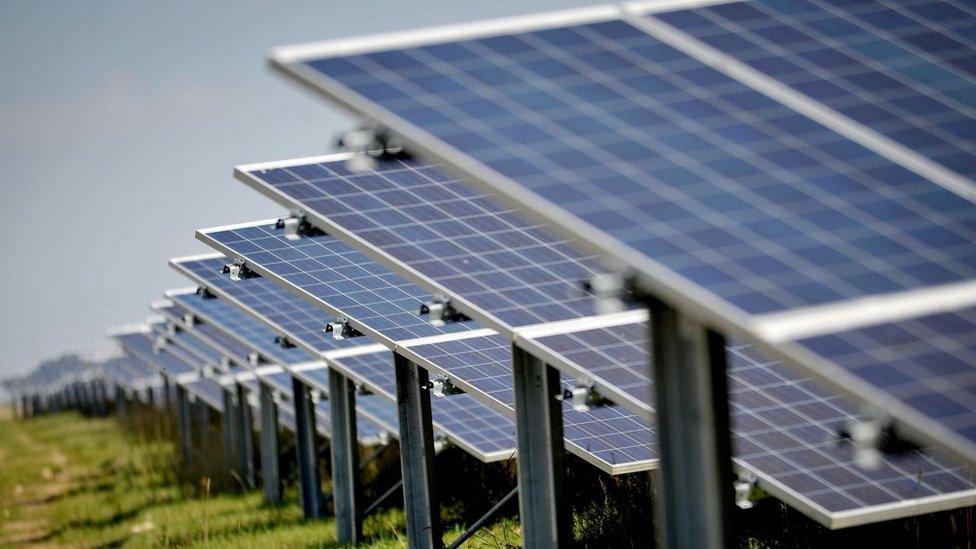
Solar farms are operating all over the country and are seen as a key part of the renewable energy mix
Energy from the sun is a key part of the renewable energy mix but some think solar farms should not be built on farmland, BBC Politics East reports.
Recently the then Prime Minister Liz Truss suggested agricultural land used for food should not be used for solar power.
But environmentalists have told the BBC that solar farms are vital to reduce carbon emissions.
A 200-acre (81-hectare) scheme has been approved at Bloy's Grove near Norwich.
The solar farm off Brick Kiln Lane, between Mulbarton, Newton Flotman and Swainsthorpe, is expected to generate enough energy to power 14,000 homes.
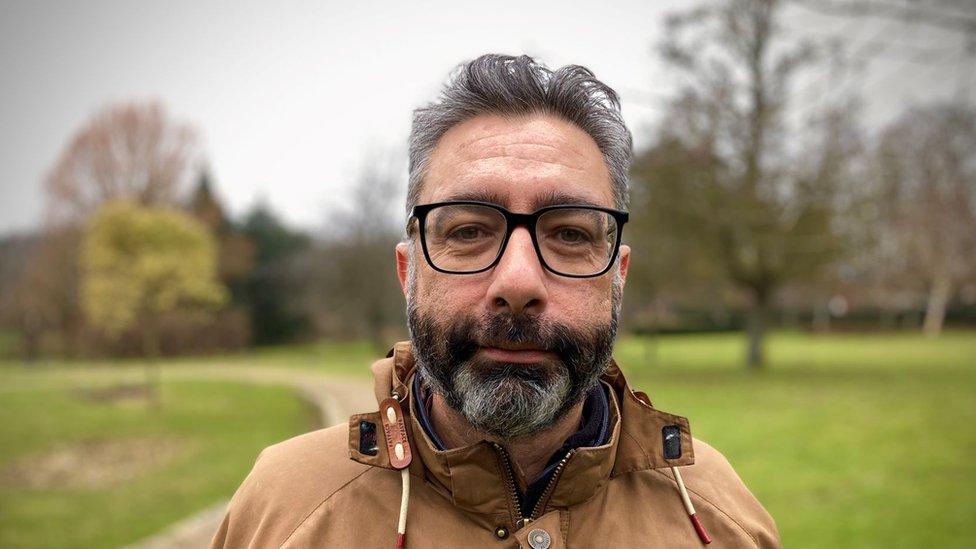
Asher Minns, from the Tyndall Centre for Climate Change Research, said the the land taken up by solar farms was a quarter of that used by golf courses
Ann Chandler, of Swainsthorpe Parish Council, said: "The land [at Bloy's Grove] has been used for growing crops for hundreds and hundreds of years, so we are extremely worried about it and upset about it.
"It's not good for our future food security. We've been told we need our food security to be self-sufficient.
"In France they are putting solar panels high above their car parks, such as supermarket car parks.
"We should think outside the box a bit more and not use our prime land."
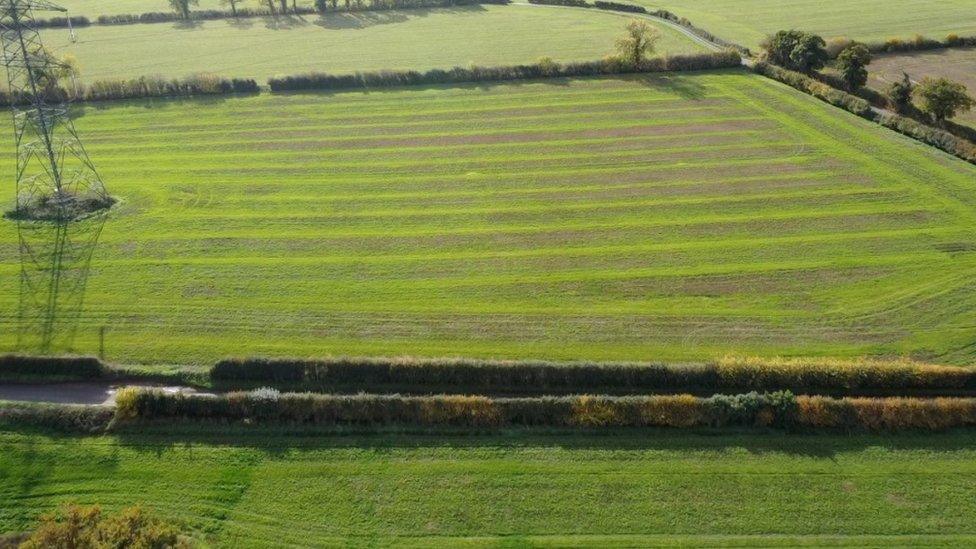
Ann Chandler, of Swainsthorpe Parish Council, said Bloy's Grove was good, productive land
EDF renewables, owned by the French state - which is behind the project, is currently building two other solar farms in the region with more in the pipeline.
Ben Fawcett, the firm's head of solar, said: "Farmers get a guaranteed income. If they know they can get a secure income, that also allows them to invest which potentially means their other land becomes more productive.
"So I don't think it is necessarily a direct conflict between food security and energy security and I think the Ukraine crisis has reminded us of the importance of energy security."
'Productive agricultural land'
Current government policy on solar generation is unclear.
Six months ago a target to increase it five-fold was announced, then last month the then PM and South West Norfolk MP Ms Truss appeared to move away from solar farms.
"I very much support the use of solar panels on commercial buildings - I thinks that's great - and on homes," she said.
"But what we shouldn't be doing is using productive agricultural land, that could be producing food, for solar energy."
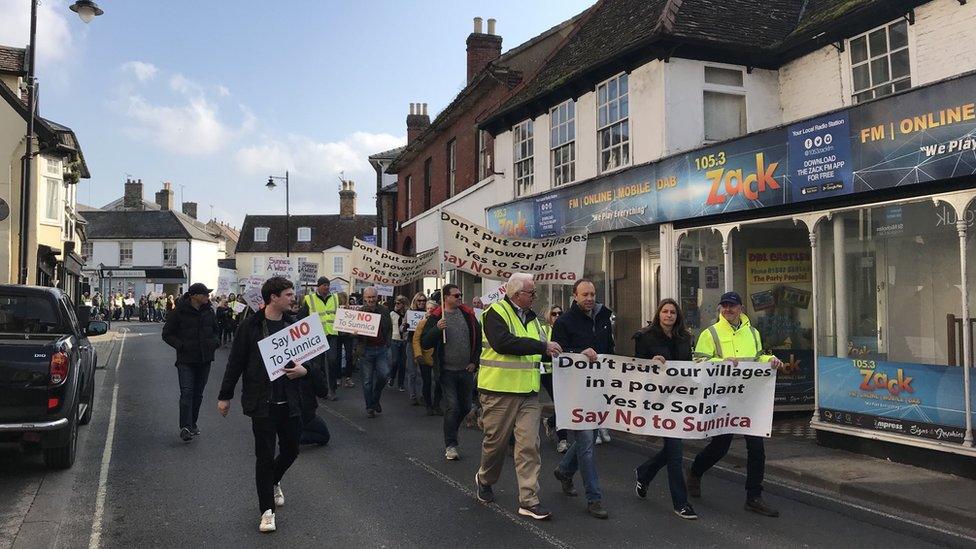
Protests demonstrated against a proposed solar farm taking in several villages on the Suffolk/Cambridgeshire border near Mildenhall
Michael Rayner, Norfolk spokesman the countryside charity CPRE, said solar farms were "a quick fix" leading to "quick profits", but not the answer to providing solar power.
"In 2014, there was a report that showed there were 250,000 hectares of commercial south-facing roof-space where we could put solar and that doesn't include domestic roof space or brownfield [urban] land," he said.
Asher Minns, the executive directive of the Tyndall Centre for Climate Change Research, based at the University of East Anglia, said the land taken up by solar farms was a quarter of that used by golf courses.
"We need solar on land and... on roofs and new-build roofs and new-build businesses," he said.
"There have to be proper building requirements that if you are building a new building you need to put solar panels on the roof. We need clean electricity going into the 21st Century."
A Department of Environment, Food and Rural Affairs spokesman said: "Protecting our environment, backing British farmers and delivering long-term energy security with more renewables is at the heart of the government's manifesto.
"We will be working closely with farmers, land managers and environmental groups as we look at ways to improve our future farming policy so that it... supports our thriving food and farming sector."
You can see more on this story on Politics East on BBC One on Sunday, 30 October at 10:00 BST, with it also available on BBC iPlayer afterwards.

Find BBC News: East of England on Facebook, external, Instagram, external and Twitter, external. If you have a story suggestion please email eastofenglandnews@bbc.co.uk, external
- Published5 October 2022
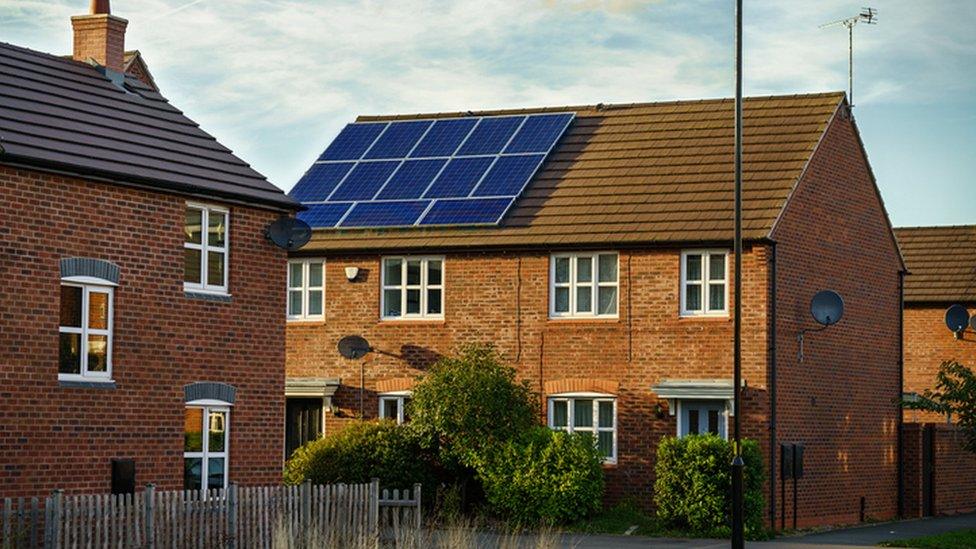
- Published28 March 2022
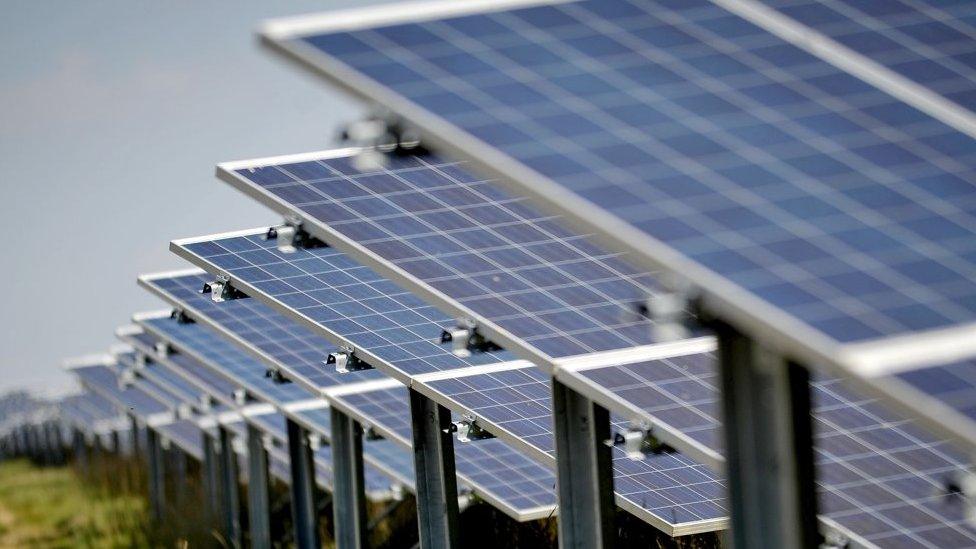
- Published20 March 2022

- Published21 January 2022

- Published15 December 2021
